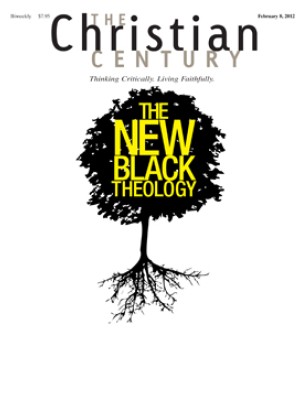Sunday, February 19, 2012: 2 Kings 2:1–12; Mark 9:2–9
If the disciples hoped before that Jesus didn't know what he was saying, these hopes are now gone.
In my childhood one of the lessons I had to learn the hard way—and repeatedly—is that coming down is almost always more difficult than going up. Whether I was scaling a tall tree, climbing rocks or racing to the top of a ladder, the descent seemed both harder and more nerve-wracking than the ascent. Perhaps that's why I'm drawn to the last verses in both the first and third readings for this day: each talks about life on the downslope.
The lection from 2 Kings describes the surprisingly poignant scene of Elijah's departure. We tend to think of prophets as loners set apart to receive and convey visions from the Lord. Yet this scene names several companies of prophets that surround Elisha, and it describes his close relationship with Elijah and his sadness at their impending separation. This is why Elisha asks for a "double share" of Elijah's spirit—not because he wants to be "twice the prophet" that his mentor was, but because he wants to be bound to Elijah as his true heir and spiritual son (Deut. 21:17). In the closing verse of the scene, Elisha has received the double share of Elijah's spirit. But all he can do is rend his clothes in grief; he has gone up with Elijah to the place of his ascension, but he must return alone.
Read our latest issue or browse back issues.
In Mark we read about a physical descent. Jesus has led Peter, James and John up a high mountain. After seeing Jesus transfigured before their eyes and witnessing his communion with legendary figures of Israel's past, the disciples must descend into the valley. On the way down Jesus orders them not to tell others what they have seen until after he has been raised from the dead. (Only days earlier he had told them that he would be crucified and raised from death.) If the disciples hoped that Jesus didn't know what he was saying—Peter's response was to rebuke Jesus—these hopes are now gone.
Coming back down is almost always harder than going up. This isn't news for most of us. We are accustomed to the letdown that follows a holiday or a vacation. Oddly, sometimes it is the climb to the heights with all that we saw there that makes the return to normalcy harder. This is true in the life of faith as well. As W. H. Auden writes in "For the Time Being: A Christmas Oratorio": "To those who have seen / The Child, however dimly, however incredulously, / The Time Being is, in a sense, the most trying time of all."
In the middle of February, Christmas is a distant memory. The Super Bowl is over, and no doubt the groundhog has seen his shadow. The economy is still sluggish, jobless rates are too high and an election cycle is in full swing. We're in "the meantime," the most trying time of all.
Yet this reading offers three insights that may speak to those of us on the descent. First, we are needed "down here." Most of life is lived in the valleys and on the slopes, not on the heights. Mark's Gospel has sometimes been characterized as preaching a message of "glory through suffering." A better designation might be "glory through service," because Jesus regularly invites his disciples to follow his example of meeting the needs of those whom society has ignored. We are not called to seek out suffering for suffering's sake, but our service to those whom society disdains may lead us to suffering.
Second, God meets us in the valley and is at work there. We humans imagine that we must retreat from society in order to meet God, maintain purity in order to stand in God's presence, or achieve some measure of moral or religious holiness in order to merit God's attention. Yet in Jesus the flow of the action is reversed. Rather than retreat from society's needs he embraces them. Rather than avoid those who are unclean or diseased he cures them. Rather than condemn those who are sinful he forgives them. When we meet others in solidarity at the places of disjuncture and fracture in their lives and our own, we find God waiting for us.
Third, moments atop the mountain—both physical and emotional—can give us insight into our lives and purpose, courage to continue on the way and renewed hope of what is to come. We remember Martin Luther King Jr.'s prophetic and telling words just before his death: he was no longer afraid because he'd been to the mountain and seen what was in store for him. We must celebrate even a glimpse of such vistas from atop the mountain; they help us as we make our way down to encounters with both God and neighbor.






